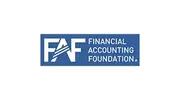Media Coverage

BNN Bloomberg
Instead of being an admission of failure, the decision to give up a leadership role can be seen as a powerful choice, said Terri Kurtzberg, professor at Rutgers Business School. “To decide to shift is difficult, and the decision to leave a position, especially in the middle of a term, can be thought of as an impressive act in this way.”

Poets&Quants for Executives
Back before COVID sent most meetings to Zoom, Farrokh Langdana remembers interviewing a West Indies EMBA candidate in his office at Rutgers Business School.
Across from him, the candidate froze. He just couldn’t talk. But Langdana saw something in the older man, and his resume was fantastic. Langdana, who grew up in Mumbai, India, picked up a cricket ball from his table, given to him by his brother.
“West Indies? You play cricket right?” Langdana said to the quiet candidate and tossed him the ball.
“He just grabbed it, and then he wouldn’t stop talking,” Langdana tells Poets&Quants. “He went on to finish his PhD in finance and now he’s a professor.”
That’s the advantage of an academic-run EMBA program, as opposed to one run by staff, says Langdana, a professor of finance and economics but also the program director of Rutgers’ Executive MBA, nicknamed the EMBA Powerhouse. All applications come directly to him. He personally conducts about 200 EMBA interviews per year.
As a tenured professor, he has the power to look past a bad day and a bad interview to see what a candidate might actually bring to an EMBA classroom.
Across from him, the candidate froze. He just couldn’t talk. But Langdana saw something in the older man, and his resume was fantastic. Langdana, who grew up in Mumbai, India, picked up a cricket ball from his table, given to him by his brother.
“West Indies? You play cricket right?” Langdana said to the quiet candidate and tossed him the ball.
“He just grabbed it, and then he wouldn’t stop talking,” Langdana tells Poets&Quants. “He went on to finish his PhD in finance and now he’s a professor.”
That’s the advantage of an academic-run EMBA program, as opposed to one run by staff, says Langdana, a professor of finance and economics but also the program director of Rutgers’ Executive MBA, nicknamed the EMBA Powerhouse. All applications come directly to him. He personally conducts about 200 EMBA interviews per year.
As a tenured professor, he has the power to look past a bad day and a bad interview to see what a candidate might actually bring to an EMBA classroom.

abc7NYC
We had people do the exact same kind of task. We had them look at a store circular deciding what items they would choose to buy, and we found out that when they did it on their cell phone, they were less able to shut down that task and go back to work effectively.

Herald Globe
Herald Globe, AIB South Asia Conference Concludes at O.P. Jindal Global University, Farok Contractor
A keynote speech was delivered by Professor (Dr.) Farok J. Contractor (the immediate past president of the Academy of International Business and a distinguished professor in management and global business at Rutgers University, USA), focusing on the role of international business in India's aspirations to become a developed nation by the year 2047.
Dr. Contractor's address was on how India can leverage itself for faster growth by harnessing the knowledge of multinational companies, with Indian company partners learning cutting-edge know-how to eventually become global players in their own right.
Dr. Contractor's address was on how India can leverage itself for faster growth by harnessing the knowledge of multinational companies, with Indian company partners learning cutting-edge know-how to eventually become global players in their own right.

Richmond Times-Dispatch
A study by Rutgers Business School finance professor Simi Kedia and Venkatesh Panchapagesan, now at the Indian Institute of Management, found that moving to the NYSE from NASDAQ involves gains in visibility and prestige for a company, that can be reflected in the price of a company’s shares. NYSE listing can also mean increased liquidity and lower transaction costs for a company’s stock, they said.

WHYY
Though the two health systems announced their intent to merge in December, it’s possible that the merger was in the works prior to then, according to Dr. David Dreyfus, an assistant professor at Rutgers Business School who focuses on health care operations. But like many things, the pandemic happened.
“They may have been eyeing [Cape Regional] pre-COVID,” he said, “but a lot of these kind of strategic objectives slowed way down during the pandemic.”
“They may have been eyeing [Cape Regional] pre-COVID,” he said, “but a lot of these kind of strategic objectives slowed way down during the pandemic.”

New Jersey Business Magazine
Rutgers-Newark Provost Jeffrey Robinson, a professor at Rutgers Business School and academic director of the school’s Center for Urban Entrepreneurship & Economic Development, praised Brown Stovell as a perfect fit for the job.
“Karen Brown Stovell’s experience in business, entrepreneurship, sustainability, mentorship and business acceleration makes her uniquely qualified to lead our Rutgers Newark partnership with Fiserv,’’ said Robinson. “Our corporate partners at Fiserv are looking forward to working with her and our faculty and staff will learn how her collaborative approach will benefit our campus."
“Karen Brown Stovell’s experience in business, entrepreneurship, sustainability, mentorship and business acceleration makes her uniquely qualified to lead our Rutgers Newark partnership with Fiserv,’’ said Robinson. “Our corporate partners at Fiserv are looking forward to working with her and our faculty and staff will learn how her collaborative approach will benefit our campus."

NJ Spotlight News
New Jersey’s minimum wage is set to rise to $14.13 an hour on Jan. 1, an increase of $1.13. But while they acknowledge it’s always good to see people get bigger paychecks, advocates for low-income workers say $14.13 an hour still falls far short of a living wage in New Jersey. “I dare anybody to scroll through Zillow and try to find a place you can live on $14 an hour in New Jersey,” said Sue Altman, executive director of New Jersey Working Families Alliance.
“With two children, the living wage would work out to something like $43 an hour. So you see, there is a bit of a disconnect,” said economist Parul Jain of Rutgers Business School.
“With two children, the living wage would work out to something like $43 an hour. So you see, there is a bit of a disconnect,” said economist Parul Jain of Rutgers Business School.

CO (USChamber.com)
How can you boost the likelihood of small business success? Several attributes, including an entrepreneurial mindset, a focus on cash flow, and an emphasis on your customers, are key to positioning your business for sustained growth and success. “Cash flow is the essence of your business,” said Gary Minkoff, assistant professor of professional practice at Rutgers Business School. Along with tracking revenue and expenses, business owners need to monitor the timing of cash receipts and payments, to ensure they have enough money to cover payroll and other upcoming bills.

Marketplace
If you leave the platform because you think he’s emboldening hate speech, you abandon an audience you’ve spent lots of time and resources building, said Stacy Smollin Schwartz at Rutgers Business School.
But if you stay and Twitter devolves, there’s a possibility your brand gets tarnished.
“A white extremist post is happening next to my post for Oreos, and someone takes a screenshot of that and it looks like I’m endorsing that, that’s bad,” Smollin Schwartz said.
But if you stay and Twitter devolves, there’s a possibility your brand gets tarnished.
“A white extremist post is happening next to my post for Oreos, and someone takes a screenshot of that and it looks like I’m endorsing that, that’s bad,” Smollin Schwartz said.

Freight Ways
“The craziness is that people are still spending,” said G. Tony Bell, an assistant professor at Rutgers Business School. “Even with interest rates rising, it still hasn’t put as much of a damper as what was expected. Yes, they are impacted, yes, they’re hurting, but it doesn’t seem like they’re hurting as much as we may think.”

Today UK News
Bankman has pushed for a system where the government would perform the role of tax preparer for American workers. Tax preparers lobbied against it. He poured $35,000 of his own money into counter-lobbying in California.
“He said, ‘Look, Jay, I could remodel my kitchen, or I can do this on behalf of taxpayers,’” said Jay Soled, a professor at Rutgers Business School who has known Bankman for about 20 years.
“He said, ‘Look, Jay, I could remodel my kitchen, or I can do this on behalf of taxpayers,’” said Jay Soled, a professor at Rutgers Business School who has known Bankman for about 20 years.

WalletHub
Who should purchase Gap Insurance?
Ideally, Auto insurance should cover the market value of the vehicle. However, there might be differences between the market value and the amount loaned to buy a car. Gap insurance would be needed by anyone who owes more (on the car loan) than what the Auto policy covers under property damage. In such cases, in the event of a total loss, the amount paid out by the insurer will not be enough to pay off the debt, and the insured may end up footing the difference, that is if there is no other insured motorist involved. In such a case, the other driver’s policy will serve the purpose.
Ideally, Auto insurance should cover the market value of the vehicle. However, there might be differences between the market value and the amount loaned to buy a car. Gap insurance would be needed by anyone who owes more (on the car loan) than what the Auto policy covers under property damage. In such cases, in the event of a total loss, the amount paid out by the insurer will not be enough to pay off the debt, and the insured may end up footing the difference, that is if there is no other insured motorist involved. In such a case, the other driver’s policy will serve the purpose.

Find MBA
Echoing several of his peers, Doug Miller, associate dean for MBA programs at Rutgers Business School, says that the GMAT “could become redundant” — not because standardized testing is void; rather as alternative means of assessment are gaining ground.
“The debate isn’t about whether standardized tests are bad at their job, it’s about whether other indicators are just as good,” Miller says, adding that there has been no decrease in the quality of candidates admitted with the waiver policy in place.
“The debate isn’t about whether standardized tests are bad at their job, it’s about whether other indicators are just as good,” Miller says, adding that there has been no decrease in the quality of candidates admitted with the waiver policy in place.

The New York Times
Welcome to our Twitter space. My name is Ben Casselman. I'm an economics reporter here at The New York Times, and we're here today to talk about disability, remote work, and employment.
Disabled people are being hired more often and making more money in the U.S.'s tight labor market. Did Covid prove that remote work was possible after all?
@bencasselman discusses with Nora Genster of @nwcenter, Mason Ameri of @RutgersBSchool, and others.
Mason Ameri:
“Just as you've noted, there's been recent academic papers suggesting broad and relatively sharp employment gains for people with disabilities since the recovery from the pandemic. And we could argue that the increase in remote work has certainly contributed to that.
“You know, during the pandemic, we all realized that many of us could work remotely, and that realization was disproportionately positive for people with disabilities. So, the acceptance we now have of remote work has really helped boost this group's employment, and it's been a total game changer.”
Listen to the entire recording; the transcript is available.
Disabled people are being hired more often and making more money in the U.S.'s tight labor market. Did Covid prove that remote work was possible after all?
@bencasselman discusses with Nora Genster of @nwcenter, Mason Ameri of @RutgersBSchool, and others.
Mason Ameri:
“Just as you've noted, there's been recent academic papers suggesting broad and relatively sharp employment gains for people with disabilities since the recovery from the pandemic. And we could argue that the increase in remote work has certainly contributed to that.
“You know, during the pandemic, we all realized that many of us could work remotely, and that realization was disproportionately positive for people with disabilities. So, the acceptance we now have of remote work has really helped boost this group's employment, and it's been a total game changer.”
Listen to the entire recording; the transcript is available.

Poets&Quants for Undergraduates
I knew I wanted to be a business school professor when… I took my first Operations Research course in the second half of my senior year of college. I was a Chemical Engineering major, about to accept a job in the chemical industry and, with room in my schedule, decided to enroll in a course in a discipline I knew next to nothing about. Within weeks I had discovered my academic passion, and was fortunate to be able to secure an NSF Traineeship and enroll in a graduate program in Operations Research, earning M.S. and Ph.D. degrees, and embarking on a fulfilling career in academia.

Northjersey.com
Stacy Smollin Schwartz, a marketing professor at Rutgers Business School, said the fast-food industry was one of the pioneers of using social media to banter and entertain with low-stakes humor.
Taking a more bold approach on social media won't necessarily equate to more people taking Amtrak, Schwartz said, but it could help the brand stick out.
"It is imperative for more brands to be more human and transparent, and you don’t scrub everything through legal first," she said. "I wouldn’t say that universally companies should be more risky or be more funny or be more sarcastic. I think it’s that companies should be more human, and being more human means understanding your customers."
Taking a more bold approach on social media won't necessarily equate to more people taking Amtrak, Schwartz said, but it could help the brand stick out.
"It is imperative for more brands to be more human and transparent, and you don’t scrub everything through legal first," she said. "I wouldn’t say that universally companies should be more risky or be more funny or be more sarcastic. I think it’s that companies should be more human, and being more human means understanding your customers."

LocalToday
“The people at Fiserv are innovative leaders who are thinking about how they can create more innovators and entrepreneurs,” Robinson said. “This partnership with RU-N is important not only to the New Jersey economy, but also to the United States economy.”

The National Desk
“It's a litmus test for many who equate this to be equivalent to economic growth and as we know, it has very little actually to do with real economic growth,” said Farrokh Langdana, professor of finance and economics at Rutgers Business School.
“People don't realize that we are not in a digital world. We're so used to turning on the light and the light comes on, putting our phones on mute and the phone becomes mute,” Langdana said. "A perfect macroeconomic soft landing in which inflation falls to manageable levels, red hot wage increases calm down and job and GDP growth slows just enough to calm down wage pressure, is exceedingly difficult to execute. With the macro policy lags, this can be a tall order."
“People don't realize that we are not in a digital world. We're so used to turning on the light and the light comes on, putting our phones on mute and the phone becomes mute,” Langdana said. "A perfect macroeconomic soft landing in which inflation falls to manageable levels, red hot wage increases calm down and job and GDP growth slows just enough to calm down wage pressure, is exceedingly difficult to execute. With the macro policy lags, this can be a tall order."

Healthline
“Cognitively speaking, we aren’t built for sustained attention for long periods of time,” Terri Kurtzberg, PhD, a professor of management and global business at Rutgers Business School, Newark and New Brunswick, told Healthline.
“We run out of juice, so to speak, and need to detach to let the mind rest before re-engaging.”
“There’s research that shows that taking breaks is good for technical tasks and improves accuracy and speed, but also that it lowers stress, restores motivation, and even promotes creativity.”
“We run out of juice, so to speak, and need to detach to let the mind rest before re-engaging.”
“There’s research that shows that taking breaks is good for technical tasks and improves accuracy and speed, but also that it lowers stress, restores motivation, and even promotes creativity.”

NJ Spotlight News
Briana Vannozzi: “According to Reuters, Reckitt, the company that supplies Enfamil, and maker of the largest baby formula brand on the market, announced the shortage is likely to continue until spring.”
Rudi Leuschner: “Reckitt, as Abbott was shut down, they could rely on Abbott’s suppliers to give them more raw materials. But now that Abbott is ramping back up, so, the same raw materials, you can’t necessarily easily make more of that either. Now you are having a supply constraint at Reckitt that prevents them from running at that ultrahigh, above and beyond level.”
@12:25
Rudi Leuschner: “Reckitt, as Abbott was shut down, they could rely on Abbott’s suppliers to give them more raw materials. But now that Abbott is ramping back up, so, the same raw materials, you can’t necessarily easily make more of that either. Now you are having a supply constraint at Reckitt that prevents them from running at that ultrahigh, above and beyond level.”
@12:25

WalletHub
What daily behaviors lead people to amass credit card debt?
High levels of inflation are impacting most people since raises have generally not kept up with price increases of the goods and services they purchase. There is also a lot of direct and indirect pressure to keep up with your peers or to live an aspirational lifestyle that many people cannot afford. Most people do not have an emergency fund so when unexpected expenses arise, such as for a car repair or medical bill, many people fund the deficit with a credit card. These and a plethora of other reasons often lead people to amass credit card debt.
High levels of inflation are impacting most people since raises have generally not kept up with price increases of the goods and services they purchase. There is also a lot of direct and indirect pressure to keep up with your peers or to live an aspirational lifestyle that many people cannot afford. Most people do not have an emergency fund so when unexpected expenses arise, such as for a car repair or medical bill, many people fund the deficit with a credit card. These and a plethora of other reasons often lead people to amass credit card debt.

Washington Examiner
Supply chains are looking “much better — improved flow of goods and lower freight charges are all helping,” said Alok Baveja, professor of supply chain management for Rutgers Business School. “Inventory stocks look more normal than they have looked for a while.”

NJ.com
Rudi Leuschner, an associate professor of supply chain management at Rutgers University, said getting back to pre-shortage baby formula stock levels will likely take more time than we’d like it to.
“But when it involves something like this and the impact is on babies and little kids, it’s crushing.”
“But when it involves something like this and the impact is on babies and little kids, it’s crushing.”

South China Morning Post
Developing countries should think twice about COP27 goals
China, India and many other developing countries should be wary of the climate commitments that were pushed for at COP27 in Egypt. The entire economies of the West were built on fossil fuels, hence asking the aforementioned countries to abstain from using them is tantamount to asking them to freeze their development. Is this a backhanded way of keeping them poor under the guise of saving the planet?
China, India and many other developing countries should be wary of the climate commitments that were pushed for at COP27 in Egypt. The entire economies of the West were built on fossil fuels, hence asking the aforementioned countries to abstain from using them is tantamount to asking them to freeze their development. Is this a backhanded way of keeping them poor under the guise of saving the planet?

NJCPA
CPA Evolution encompasses a new model for licensure and the CPA Exam that will subsequently necessitate some significant changes to our accounting programs. As accounting educators, we’ve been considering CPA Evolution for some time. The CPA Exam is due for an overhaul, and we are enthusiastic about the changes, but many questions remain about how best to incorporate these new topics into our programs. Curriculum changes aren’t always easy to achieve. And while we recognize the importance of the new material, we also grapple with the challenge of where to include the new material in a curriculum that is already jam-packed.
Accounting educators have been considering CPA Evolution for some time, but what about accounting students? Are they thinking about the new licensure model at all? Do they welcome the changes? Are they worried? To find the answers, I polled a few accounting majors at Rutgers Business School. Most of the students who responded to my inquiry were juniors and seniors — all of whom are likely to be affected by the new CPA Exam.
Accounting educators have been considering CPA Evolution for some time, but what about accounting students? Are they thinking about the new licensure model at all? Do they welcome the changes? Are they worried? To find the answers, I polled a few accounting majors at Rutgers Business School. Most of the students who responded to my inquiry were juniors and seniors — all of whom are likely to be affected by the new CPA Exam.

Wilmington Biz
Live Oak officials did not comment, by press time, on the reasons behind their decision. Some possible motivators are suggested by Simi Kedia and Venkatesh Panchapagesan, of Rutgers Business School and Olin School of Business, respectively. In a 2004 research paper, the two cite "significant gains" a company can make by listing on the NYSE rather than Nasdaq.

ROI-NJ
Morris Davis, the Paul V. Profeta Chair of Real Estate and the academic director of the center, said Ladell is a perfect fit for the role.
“From the time that the Rutgers Center for Real Estate was established, Ron Ladell has been an integral part of the mission of the center and successfully engaged in all aspects of the center’s activities, including academics, research, fundraising and student outcomes,” he said. “As a result, I am pleased to announce that Ron has accepted my invitation to become the next chair of the Rutgers Center for Real Estate.”
“From the time that the Rutgers Center for Real Estate was established, Ron Ladell has been an integral part of the mission of the center and successfully engaged in all aspects of the center’s activities, including academics, research, fundraising and student outcomes,” he said. “As a result, I am pleased to announce that Ron has accepted my invitation to become the next chair of the Rutgers Center for Real Estate.”

Rutgers Today
Rutgers Today asked Stacy Smollin Schwartz, a marketing professor at Rutgers Business School and the founding director of its fully online Master of Science in Digital Marketing program, to shed some light on the story, which is changing by the hour.

U.S. News & World Report
It is not illegal for companies to pay employees through benefits instead of salaries, but those benefits must still be reported to tax authorities as income - with the exception of minor perks like free coffee at the office, said Jay Soled, a lawyer and accounting professor at Rutgers Business School in New Jersey.

NJ Spotlight News
NJ Spotlight News with Briana Vannozzi reporting on the U.S. House voting to avert a nationwide rail strike.
Professor Rudi Leuschner comments at 5:11. Watch the video. Full transcript available.
Professor Rudi Leuschner comments at 5:11. Watch the video. Full transcript available.

NJ.com
“Last year we had far more severe and systematic supply chain problems than this year and more significant Covid concerns,” said John Impellizzeri, director of the center for supply chain management at Rutgers University business school. “We’re in a better position than last year, but we are dealing with persistent supply chain issues.”

ClickZ
One of the easiest ways to optimize your digital marketing is by making a bigger investment in one type of marketing which will help optimize and lower spend on multiple types of marketing.
This type of marketing that I refer to is influencer marketing. When you look at influencers as being those social media users that publish content and have networks of friends and fans that follow their advice, you begin to see a holistic perspective on influencer marketing.
This type of marketing that I refer to is influencer marketing. When you look at influencers as being those social media users that publish content and have networks of friends and fans that follow their advice, you begin to see a holistic perspective on influencer marketing.

Wiley Online Library
"Applied Stochastic Models in Business and Industry"
Dynamic inventory system with pricing adjustment for price-comparison shoppers
Wen Chen, Michael Katehakis, Qian Tang
With numerous price-comparison websites and applications, consumers today are frequently conducting price-comparison shopping. As a result, retailers face an increasing challenge in predicting consumer demand and determining the optimal product price and inventory level accordingly. To address this issue, this paper proposes an inventory model with joint decisions of price and inventory to optimize the retailer's long-run average profit under price-comparison consumer shopping.
Dynamic inventory system with pricing adjustment for price-comparison shoppers
Wen Chen, Michael Katehakis, Qian Tang
With numerous price-comparison websites and applications, consumers today are frequently conducting price-comparison shopping. As a result, retailers face an increasing challenge in predicting consumer demand and determining the optimal product price and inventory level accordingly. To address this issue, this paper proposes an inventory model with joint decisions of price and inventory to optimize the retailer's long-run average profit under price-comparison consumer shopping.

Money Geek
Is it important for the average consumer to understand how the federal funds rate works? Why or Why not?
They may not need to know the details, but they should understand the role of interest rates and how it increases the cost of buying a house, mortgage or college education.
Although it’s a macroeconomic concept, how does the federal funds rate affect consumers’ personal finances?
The Federal Funds Rate mainly impacts short-term interest rates. For example, if someone runs a balance on their credit card, it increases the interest payment they owe to the credit card provider. This is one of many reasons why it is usually a bad idea not to pay your credit card off in full each month.
They may not need to know the details, but they should understand the role of interest rates and how it increases the cost of buying a house, mortgage or college education.
Although it’s a macroeconomic concept, how does the federal funds rate affect consumers’ personal finances?
The Federal Funds Rate mainly impacts short-term interest rates. For example, if someone runs a balance on their credit card, it increases the interest payment they owe to the credit card provider. This is one of many reasons why it is usually a bad idea not to pay your credit card off in full each month.

Find MBA
According to Mahmud Hassan, the director of Rutgers' Business School's Pharmaceutical MBA Program, the program is not for everybody, and the students who tend to excel in the program are those who have either an interest in the industry, or a strong technical background (some students might even already have either a PhD or a PharmD.)
“For the people who have done well, they've had science backgrounds or experience in the healthcare industry,” Hassan says, adding that “they may have worked not directly with the pharma industry, but indirectly, like as a consultant, or as a researcher.”
“For the people who have done well, they've had science backgrounds or experience in the healthcare industry,” Hassan says, adding that “they may have worked not directly with the pharma industry, but indirectly, like as a consultant, or as a researcher.”

Rutgers Today
Parul Jain, associate professor of professional practice, Rutgers Business School: Black Friday deals may be misleading (and have a massive time cost) and Cyber Monday deals may offer better value.
A general consensus is that comparison shopping is needed, with a complete check on internet prices. It would be helpful to reduce the budget and focus on reduced lists. Additionally, everyone should make lists and avoid costly items. Also, while name brands are popular, it is important to assess quality relative to price. Plus, some brand items may be cheaper because of offbeat colors.
Kristina Durante, marketing department vice chair and professor, Rutgers Business School: Consumers were geared up for holiday cheer this year and spending started early. On the one hand, consumers are concerned about inflation and spending too much. On the other hand, they are more excited for the holidays than in prior years. Consumer eagerness for the holidays this year comes from the back-to-normal feel compared with pandemic days and wanting to control holiday spending and wrap up early before prices change again.
G. Tony Bell, assistant professor of professional practice, Rutgers Business School: Last year, we saw retailers and their suppliers operating in a just-in-time environment by minimizing their inventories as much as possible without sacrificing service. This was an overall management strategy aimed at receiving goods as close as possible to when those goods are needed.
A general consensus is that comparison shopping is needed, with a complete check on internet prices. It would be helpful to reduce the budget and focus on reduced lists. Additionally, everyone should make lists and avoid costly items. Also, while name brands are popular, it is important to assess quality relative to price. Plus, some brand items may be cheaper because of offbeat colors.
Kristina Durante, marketing department vice chair and professor, Rutgers Business School: Consumers were geared up for holiday cheer this year and spending started early. On the one hand, consumers are concerned about inflation and spending too much. On the other hand, they are more excited for the holidays than in prior years. Consumer eagerness for the holidays this year comes from the back-to-normal feel compared with pandemic days and wanting to control holiday spending and wrap up early before prices change again.
G. Tony Bell, assistant professor of professional practice, Rutgers Business School: Last year, we saw retailers and their suppliers operating in a just-in-time environment by minimizing their inventories as much as possible without sacrificing service. This was an overall management strategy aimed at receiving goods as close as possible to when those goods are needed.

NPR OnPoint
Last year at this time, retailers had high demand, but stock was in short supply. This year, that's turned on its head. So, what does that mean for consumers? Assistant Professor of Professional Practice G. Tony Bell, Department of Supply Chain Management and Alla Valente join Kimberly Atkins Stohr.

MSN
Yla Eason, the creator of the first Black superhero figure and who is also a professor of professional practice at Rutgers Business School in Newark, says she’s excited to see Afro-futuristic toys roll out this season more than ever before. Sun-Man, the Black action figure she designed in the 80s, has been growing in popularity over the last several years, an industry shift she believes is due in large part to the Black Panther fandemonium.
“For boy's toys especially, there’s a lot of Black animation, gaming that’s being developed, drawn from comic books and sci-fi. Its characters looking like you and being futuristic and magical, and mystical, it’s part of the genre right now. And I’m seeing a mass of it, not just a one-off," Eason told Rutgers University.
“For boy's toys especially, there’s a lot of Black animation, gaming that’s being developed, drawn from comic books and sci-fi. Its characters looking like you and being futuristic and magical, and mystical, it’s part of the genre right now. And I’m seeing a mass of it, not just a one-off," Eason told Rutgers University.

The Root
Yla Eason, the creator of the first Black superhero figure, says she’s excited to see Afro-futuristic toys roll out this season more than ever before. Sun-Man, the Black action figure she designed in the 80s, has been growing in popularity over the last several years, an industry shift she believes is due in large part to the Black Panther fandemonium.
“For boy's toys especially, there’s a lot of Black animation, gaming that’s being developed, drawn from comic books and sci-fi. Its characters looking like you and being futuristic and magical, and mystical, it’s part of the genre right now. And I’m seeing a mass of it, not just a one-off," Eason told Rutgers University.
Eason, who is also a professor of professional practice at Rutgers Business School in Newark, founded Olmec Toys in 1985. With this company, the entrepreneur developed an entire multicultural line of action figures. Eason says that she was motivated to get to work after her three-year-old son told her he would never be able to become a superhero because he was Black.
“If you can see yourself as powerful, you can be powerful," explained Eason. “If you have to limit your fantasy world, your imagination, that’s frightening."
“For boy's toys especially, there’s a lot of Black animation, gaming that’s being developed, drawn from comic books and sci-fi. Its characters looking like you and being futuristic and magical, and mystical, it’s part of the genre right now. And I’m seeing a mass of it, not just a one-off," Eason told Rutgers University.
Eason, who is also a professor of professional practice at Rutgers Business School in Newark, founded Olmec Toys in 1985. With this company, the entrepreneur developed an entire multicultural line of action figures. Eason says that she was motivated to get to work after her three-year-old son told her he would never be able to become a superhero because he was Black.
“If you can see yourself as powerful, you can be powerful," explained Eason. “If you have to limit your fantasy world, your imagination, that’s frightening."

Yahoo! Life
Yla Eason, the creator of the first Black superhero figure and who is also a professor of professional practice at Rutgers Business School in Newark, says she’s excited to see Afro-futuristic toys roll out this season more than ever before. Sun-Man, the Black action figure she designed in the 80s, has been growing in popularity over the last several years, an industry shift she believes is due in large part to the Black Panther fandemonium.
“For boy's toys especially, there’s a lot of Black animation, gaming that’s being developed, drawn from comic books and sci-fi. Its characters looking like you and being futuristic and magical, and mystical, it’s part of the genre right now. And I’m seeing a mass of it, not just a one-off," Eason told Rutgers University.
“For boy's toys especially, there’s a lot of Black animation, gaming that’s being developed, drawn from comic books and sci-fi. Its characters looking like you and being futuristic and magical, and mystical, it’s part of the genre right now. And I’m seeing a mass of it, not just a one-off," Eason told Rutgers University.

Money Geek
Simply put, stagflation is made up of high inflation and a slowing economy. However, conventional methods by central bankers to address either one tend to exacerbate the other. How have central bankers been dealing with stagflation in recent years?
Central bankers are trying to deal with inflation by raising interest rates, which makes many items more expensive, thereby reducing demand. They are also shrinking the money supply, which also tends to increase interest rates. However, central banks can't fix the supply chain problems or the war in Ukraine, which is another factor increasing the prices of some commodities.
Central bankers are trying to deal with inflation by raising interest rates, which makes many items more expensive, thereby reducing demand. They are also shrinking the money supply, which also tends to increase interest rates. However, central banks can't fix the supply chain problems or the war in Ukraine, which is another factor increasing the prices of some commodities.

AP
“Certain toys, for example consoles and certain games more than likely, they’ll sell out quickly,” says G. Tony Bell, an assistant professor in the department of supply chain management at Rutgers Business School. “So I would say, definitely buy early. The price advantage in buying later than buying earlier is going to be minimal at best.”

Financial Accounting Foundation
The Board of Trustees of the Financial Accounting Foundation (FAF) today announced the appointment of Joyce Joseph to the Financial Accounting Standards Board (FASB). Ms. Joseph currently serves as managing director for Capital Accounting Advisory and Research, LLC and as an assistant professor of professional practice at Rutgers University. Her term is effective July 1, 2023 and runs until June 30, 2028. She will then be eligible for consideration for reappointment to one additional five-year term.

Rutgers-Newark News
“For boy’s toys especially, there’s lot of Black animation, gaming that’s being developed, drawn from comic books and sci-fi. It’s characters looking like you and being futuristic and magical and mystical, it’s part of the genre right now. And I’m seeing a mass of it, not just a one-off,’’ said Eason, creator of Sun-Man, the first Black superhero action figure, and a professor of business at Rutgers University–Newark.

The National Desk
“President Biden should stress that moderates on both sides won, and he can't wait to reach out across the aisle,” said Farrokh Langdana, professor of finance and economics at Rutgers Business School. “He should not demonize the Republicans, he should dangle tax cut talk for them, and they will be trapped. They really have to rise to the challenge because someone dangles tax cuts and they don't rise to that; they will then look bad because that's their big mantra — tax cuts — and they will actually help. This is not just a political thing.”

Daily Journal
"A lot of this inflation evolution is beyond the control of the White House," said Parul Jain, an associate professor of finance and economics at Rutgers Business School. But the current administration "always has to answer" for tough times, she added.

Tim Peter & Associates
This episode of Thinks Out Loud looks at the lessons the team and I have learned from ten years of running a podcast. We dive into how you can use those lessons to improve your business. We explore how you can put content marketing into action for your brand. And we take a look at where Thinks Out Loud might be going in the future—and how we can all together when we get there.

Bloomberg Tax
During the pandemic, more wealthy Americans “may have been caught with an unplanned estate,” said Jay Soled, a Rutgers University professor and estate-planning attorney. Another dimension is that “increases in the stock market and private equity were pretty stupendous” in recent years, he said.

Agence France-Presse
Surging consumer prices are far and away the top voter concern in upcoming US midterm elections, beating out worries about crime and abortion as households feel the squeeze from pricier food, shelter and services.
All of these weigh on consumers, with today's inflation levels unheard of for those below age 40, said Farrokh Langdana of Rutgers Business School.
"For so many people, this is like a new phenomenon," he said.
All of these weigh on consumers, with today's inflation levels unheard of for those below age 40, said Farrokh Langdana of Rutgers Business School.
"For so many people, this is like a new phenomenon," he said.